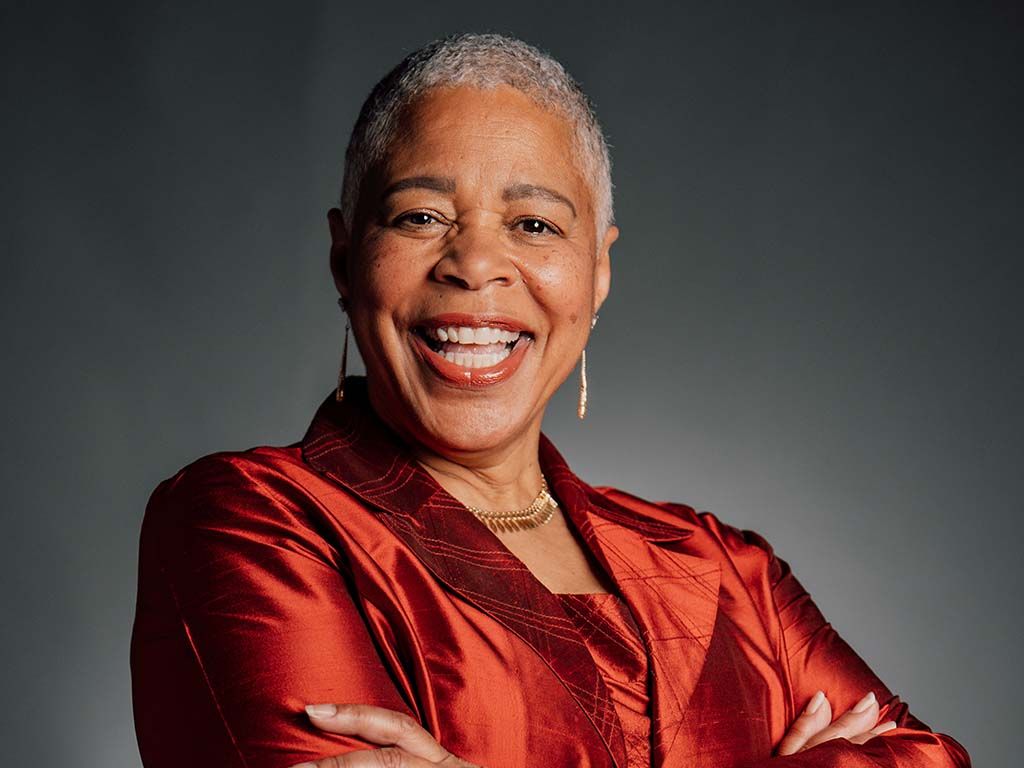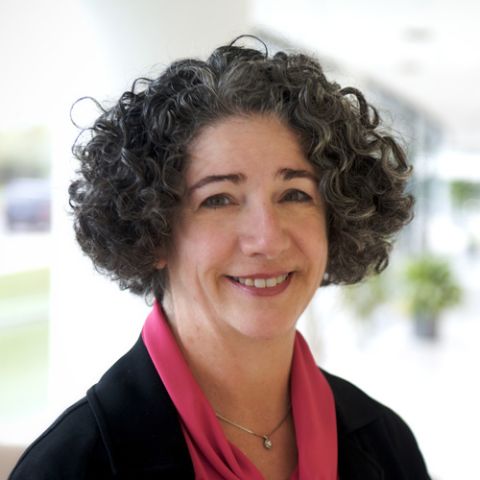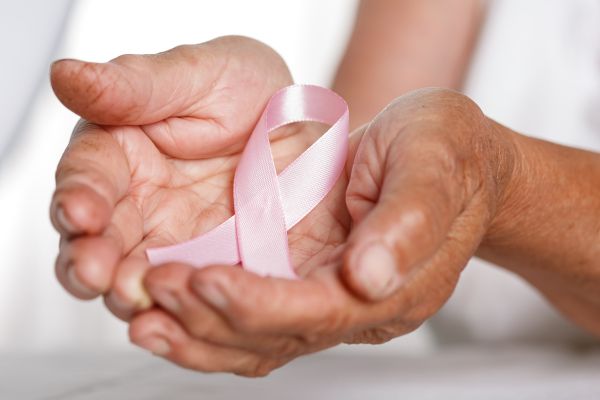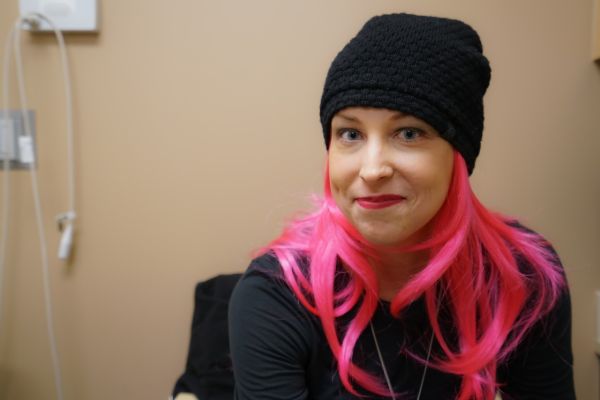When a disease like breast cancer is diagnosed in multiple members of the same family, it would be easy to assume this family shares a genetic factor that is associated with a higher risk of developing the disease.
For Veronica Meadows Ray and her family, which includes five breast cancer survivors, that assumption would prove false.
“During my lifetime I have witnessed four cousins be diagnosed with and survive breast cancer at ages 28, 30, 47 and 55. My mother who was diagnosed at age 68, and my aunt, age 78, also survived and lived cancer-free until their quiet passing in their 80s,” she says. Veronica herself received her diagnosis at age 47. After speaking to her mother, who had become a volunteer at the National Witness Project, an outreach group focused on cancer education in the Black community, Veronica met with Stephen Edge, MD, FACS, FASCO, a surgical oncologist previously with Roswell Park Comprehensive Cancer Center.
It was also suggested, given the number of women in her family diagnosed with breast cancer, that Veronica undergo genetic testing to see whether she carried a mutation that increased her risk of developing cancer. “My thought was, I don’t believe there is a need to spend $3,000 on a test when it’s obvious, based on the multiple survivors in my family, that I would test positive,” she recalls.
Surprisingly, the test came back negative for Veronica and her cousins. “I found it puzzling that not one of my relatives tested positive for the breast cancer genes BRCA1 and BRCA2, which were discovered back in the 1980s as a result of a genetic study that included only European women,” she says. “I jokingly suggested that perhaps there should be a genetic study utilizing African American women. Maybe there would be jewels in our genes that could help!”
Deborah Erwin, PhD, a professor of oncology in the Department of Cancer Prevention and Control, agreed. “She thought it was a genius idea. She wrote up everything, applied for a Susan G. Komen grant and they received $500,000 in 2009 to start the study. I was involved from the very beginning, designing brochures, designing the forms. It was really intricate and so interesting. They let me be involved every step of the way.”
The study, called The Jewels in Our Genes, An African Family Gene Study, recruited 150 families locally and nationally with a history of multiple cases of breast cancer to learn more about breast cancer susceptibility in African American families, and at the time Dr. Erwin called it an “exceptional example of the benefits of connecting the disease concerns of patients and the community with appropriate scientific expertise to initiate novel research.” The study also involved Dee Johnson, Director of the National Witness Project, and State University of Buffalo Epidemiologist Heather Ochs-Balcom.
A ROCKStar is born
It was also just the beginning of Veronica’s involvement with Roswell Park. While the study was being conducted, she helped recruit people to submit their DNA via a saliva sample and provide information regarding the type of breast cancer they were diagnosed with for the data collection. It sparked a conversation about the need for patient and survivor input in research studies, starting when research is being drafted and studies established. Veronica was asked if she would be willing to continue to provide a non-scientific opinion and perspective on potential studies going forward.
"Being asked to continue to help Roswell Park by volunteering to work directly with the science team was yet another opportunity to help Roswell Park advance their cancer research and studies. Specifically helping to reword scientific study application jargon into layman’s terms, making all the information presented to the public easy to understand to hopefully result in more research volunteers. That’s how I joined the ROCKStar team at Roswell Park, which consists of many other patient survivors of various types of cancer.”
Roswell Park’s ROCKStars program — Research Oncology Community Knowledge — is an essential part of making sure physicians and researchers take a patient’s, survivor’s, or caregiver’s experience and perspective in mind when they’re creating studies. Having this knowledge and making sure the language used when speaking to these non-clinical contributors is easy to understand is critically important to designing a study.
Veronica could’ve walked away when stage one of the Jewels in Our Genes study wrapped up in 2019, considering her treatment was completed 12 years earlier in 2007. She didn’t need, and had no obligation to continue. But she’s still part of the ROCKStar program today and her portrait is among the first on display in the new Community Outreach and Engagement Building on Michigan Avenue, where the program is now housed along with other outreach efforts.
“My mom and my St. Philips Episcopal Church family taught me the importance of caring for the community that you live in at a very young age,” she says. “If God had brought me through all this, blessed me and healed me, who am I to stop and stand in the way of progress? I’ll do everything I can to help this community so I say yes as often as possible to whatever (Roswell Park) needs and I enjoy it.”
Community Outreach and Engagement (COE)
Read more about all the ways Roswell Park's COE team is interacting with, educating and screening those most at risk in our community.
Reaching out to help others
Veronica also has become a member of the National Witness Project, further giving her time and experience to help people understand the importance of early detection and regular cancer screenings. In a way, she says, she’s thankful she went through the experience of being a patient firsthand. “I see how experiencing cancer treatment has helped me understand the importance of helping others. It’s an awful experience but God blessed me every step of the way, so much that at times I felt I wasn’t sick at all.”
She’s excited for the opportunities that will come from the new facility, which features a large group meeting room, offices for both the Witness Project and Esperanza y Vida (a Spanish-language outreach group), and the ability for community members to walk in and talk to someone about cancer screening outside of a clinical facility.
“The new Community Outreach and Engagement Center is small and intimate. I think patients who might be overwhelmed by the hustle and bustle of the main hospital will appreciate having 907 Michigan as another option in the community. I am sure this new facility will help reach even more folks and bring new love and appreciation for Roswell Park. I am proud and humbled to be part of this new community facility. This is my cancer story and I am excited to be a part of the Roswell Park Comprehensive Cancer Center 907 Michigan legacy.”
Editor’s Note: Cancer patient outcomes and experiences may vary, even for those with the same type of cancer. An individual patient’s story should not be used as a prediction of how another patient will respond to treatment. Roswell Park is transparent about the survival rates of our patients as compared to national standards, and provides this information, when available, within the cancer type sections of this website.




